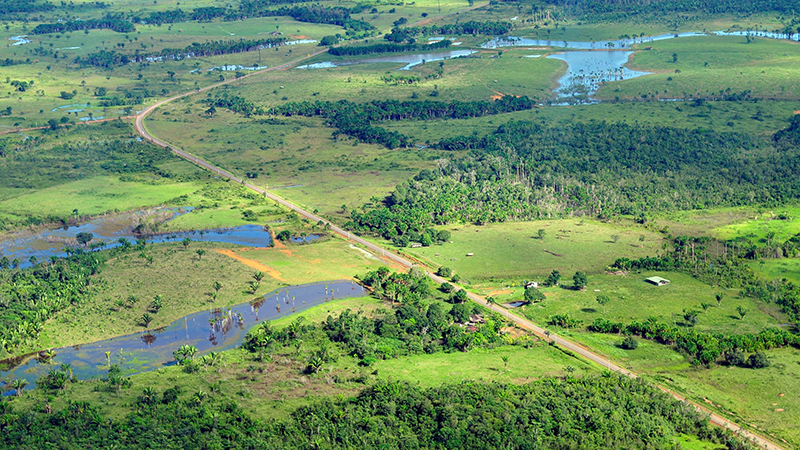Was it a letter from Norway’s environment minister or supermodel Gisele Bündchen’s twitter advocacy that made up his mind?
Either way, this week Brazil’s president Michel Temer vetoed a controversial bill that would have lowered protections on a large swathe of Amazon rainforest. The respite may be short-lived, though, with Temer’s environment minister working on a replacement bill.
In case you missed it, Fabiano Maisonnave had this incredible dispatch from Novo Progresso, illustrating the practical impact of the proposals: a free pass to criminals who got rich stripping land for farming or mining.
The decision to veto came just ahead of Temer’s visit to Oslo, where he is touting investment opportunities into his struggling economy.
There, he faced a reminder that Norway is one of the biggest donors to Amazon protection – but payment depends on results. If deforestation continues to rise, there will be less cash flowing from Brazil’s partner in the north.
Trump antidote
Donald Trump is not the United States. That was the takeaway from a low-key demonstration your correspondent attended at a beachside parking lot in Rhode Island.
The president can be as gung-ho as he likes about developing US fossil fuels, but it won’t wash if communities refuse to host those projects.
Here, a disillusioned Republican voter has turned community spokesperson against a proposed gas power plant. Concern for its impact on a naturally beautiful area transcending the usual partisan divides over climate and energy.
“Caring about climate is not just for the activists, it is not just for the liberal professors and scientists, it is for average, ordinary citizens,” says Jason Olkowski.
Foot off the gas
Gas has long been touted as a “bridge fuel” to a clean energy future, given its lower carbon footprint than coal. But that bridge is running out of road, according to a report from Climate Action Tracker.
A significant chunk of planned investment in gas infrastructure is incompatible with the Paris Agreement aspiration of holding global warming below 1.5C, analysts warn.
They argue that overly bullish forecasts of gas demand are leading to wasteful spending on pipelines and port terminals. Conversely, if the projects are used to capacity, they will lock in unsafe levels of climate change.
Clean coolants
At Climate Home’s base in London, temperatures went over 30C, a rare enough occurrence to count as a heatwave for Britain. Across much of India, it is the norm – and only 4% of the population have access to air conditioning.
Following last year’s global pact to phase down HFCs, a class of chemical coolants with a high warming impact, Indian manufacturers are under pressure to reconcile soaring AC demand with new environmental standards.
They are switching to coolants with a medium global warming potential, Huizhong Wu reported from a facility in Rajasthan – but more research is needed to get off HFCs altogether.
Dear dairy
In Motony, Kenya, selling firewood or charcoal used to be the best way for women to supplement their income from farming. But over time, this common trade stripped the land of trees. Women had to walk further to find fuel.
A co-operative is changing all that, Wesley Langat reports. With backing from the Netherlands, women have trained in dairy management, giving them more economic independence. They are also planting trees to rehabilitate the landscape.
G’day, stalemate
Trump may have taken the crown of international climate pariah, but Australia is still languishing near the back of the global pack.
A review of the electricity market has proposed a clean energy target, but Graham Readfearn reports the same old political divisions are holding back progress.
Gore on morality
Former US vice president Al Gore compared the fight against climate change to historic moral causes against slavery and for universal suffrage, speaking at a green awards ceremony in London.
Those movements prevailed despite “ferocious opposition”, he said, as reported by Lucy EJ Woods.
